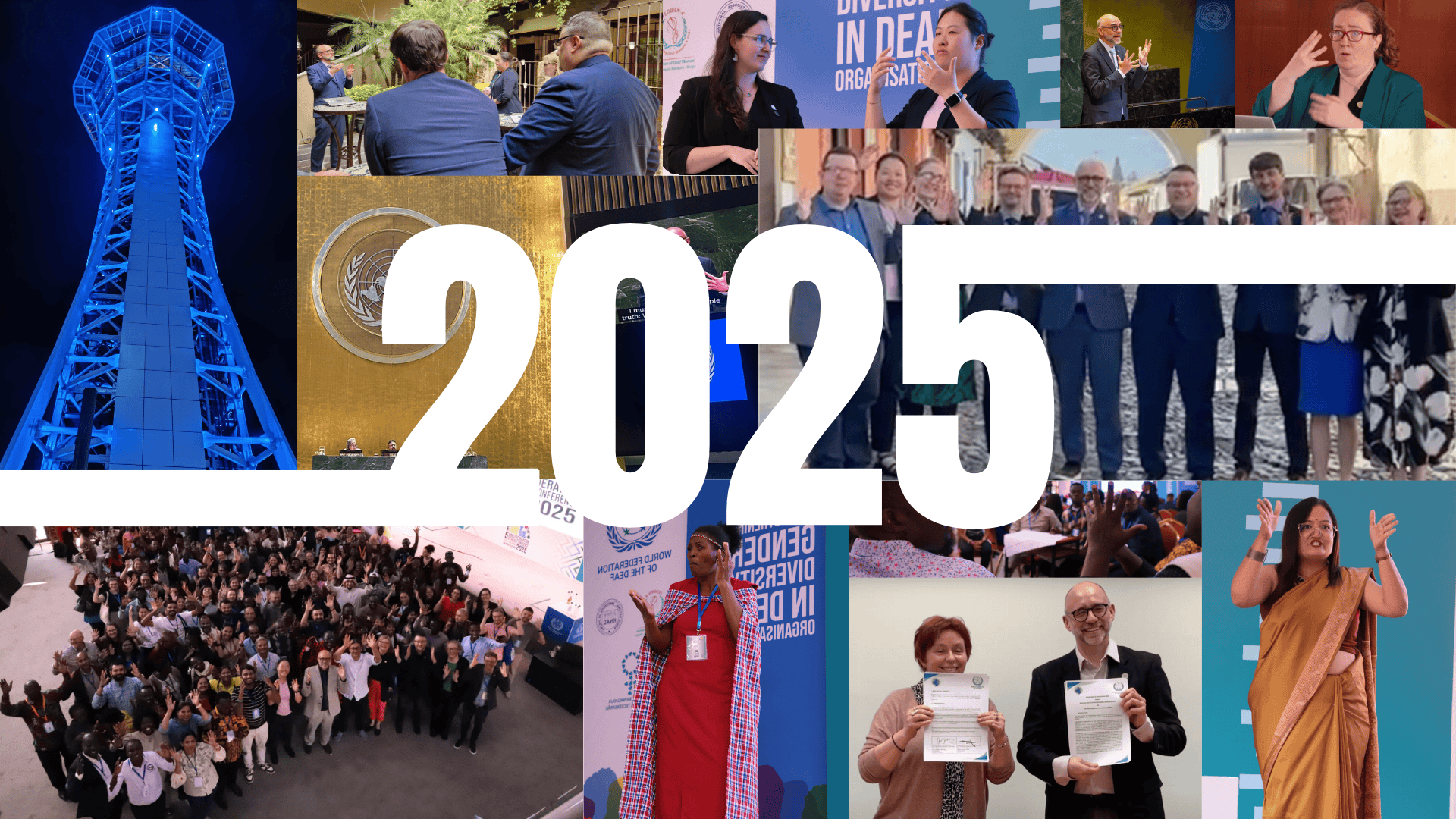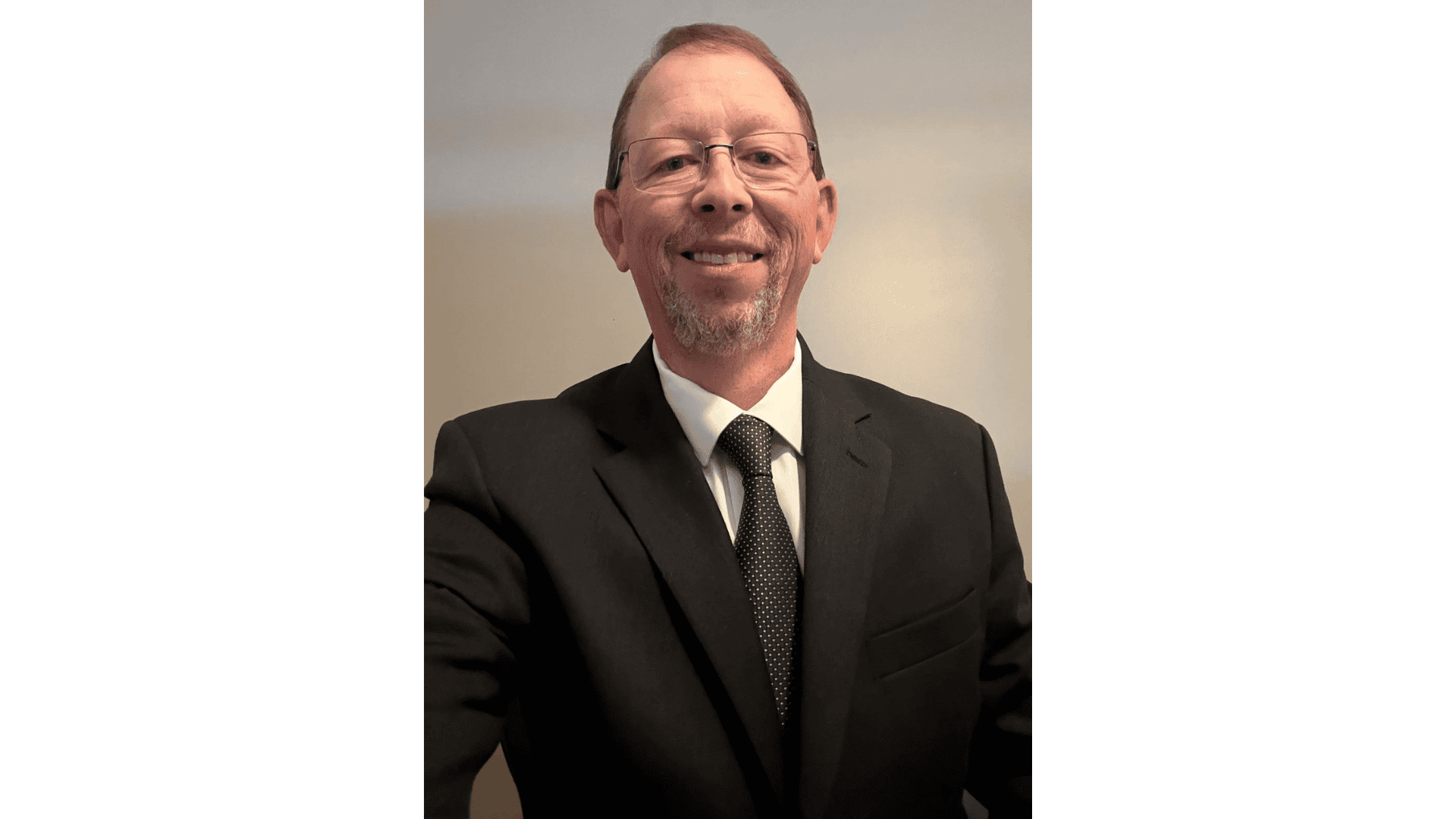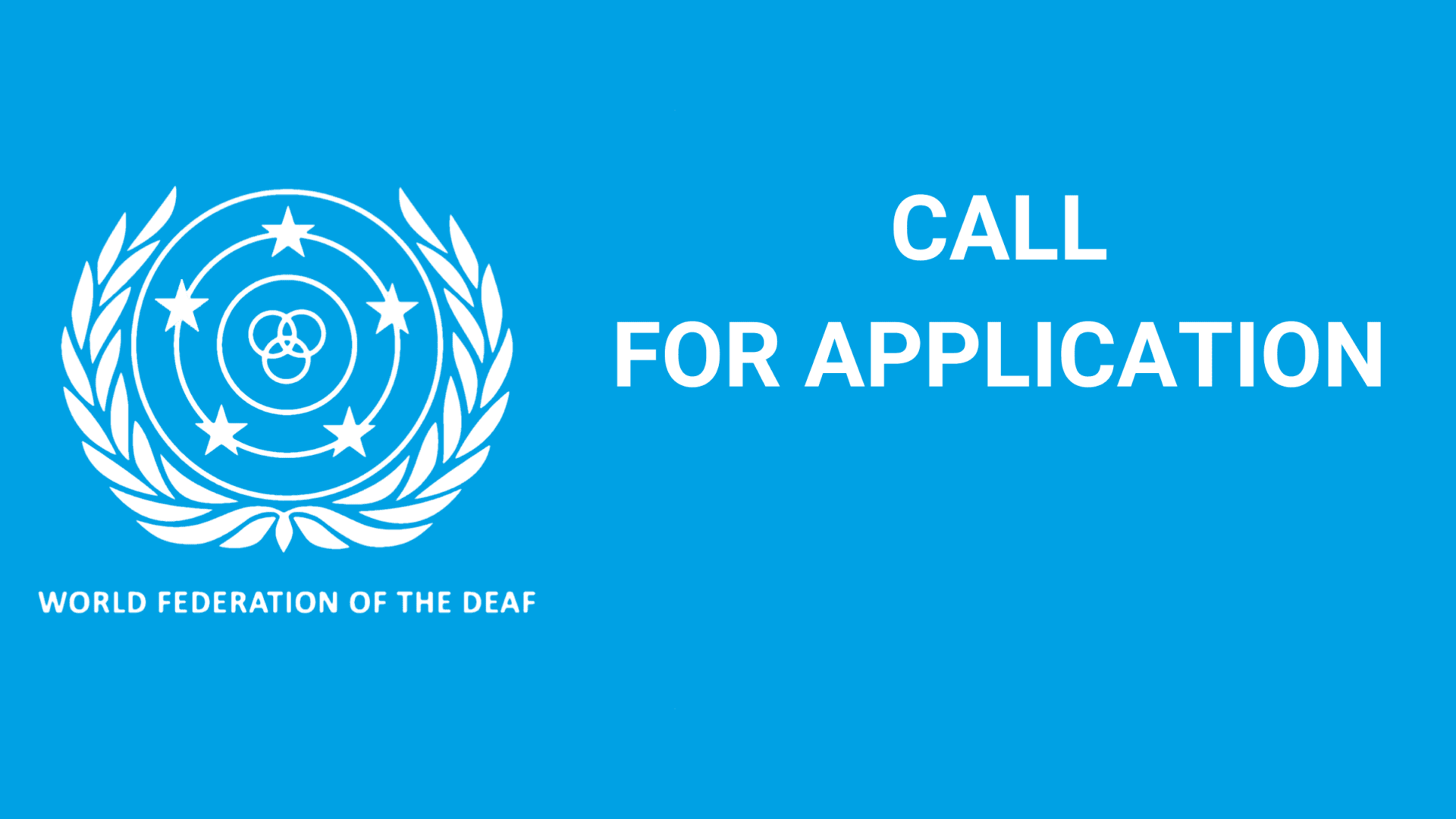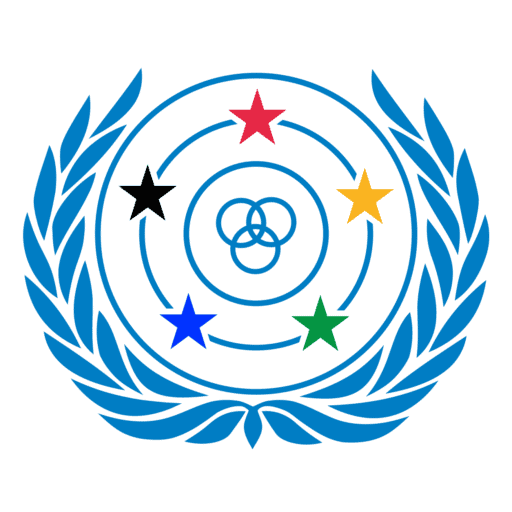Markku Jokinen opened the daily press conference explaining his view about the term ‘developing countries’. He suggested that many people understand this expression to “imply that some nations are more advanced than others or that these countries have nothing in common with so called ‘developed’ nations”. He acknowledged that each country needs to address its own unique problems, regardless of financial prosperity and nomenclature.
The theme of the day’s Congress presentations referred to those nations that demonstrate a significant disparity in resources and are markedly in need of support.
Thomas Hedberg then provided some background to a global research study undertaken by WFD during 2003-2007. This worldwide survey attempted to gain some idea of the social, educational, linguistic and employment contexts in which deaf people live. Seven regions were assessed as part of this report. “The findings of the study led to a search for funding opportunities to work in western central African countries. As a result, nations in western central Africa received funding from SHIA until from 2007-2011. These efforts would continue”.
Kasper Bergmann, WCAR Project Coordinator, went on to explain that initially 19 countries were indentified to participate in the project. “Unfortunately for political reasons, we were only able to access 14 of the 19 nations that we aimed to visit, due to no contacts on the ground or experiencing civil war. Of those countries involved, four were English speaking countries and ten French”.
Mr Bergmann explained that a team traveled to each country, generating a situation analysis and investigating the resources in each area. A general training programme was then developed to impart information on the topics of: establishling deaf organizations; deaf awareness; interpreting services, and education.
“Initially we believed that these topics would be the first of two separate training sessions, the second focusing on Human Rights. Once we arrived, we realized that these goals were unrealistic given the context and instead we emphasized and built upon the first training”. As a result, four countries received human rights training. Mr Bergmann enthused that “we are able to see a direct impact of these efforts as 15 of those countries are here at this Congress as delegates or members. However, we still note that this region lacks a regional secretariat, enabling them to network with other deaf associations”.
Members of the WCAR region during its inaugural General Assembly, voted to establish a regional office in Cameroon. Cameroon was chosen due to its official language policy of working in both French and English. This is anticipated to enable access from nations that use one or the other language, ensuring linguistic access for all in the region.
It was announced that the WCAR region will meet at Blue Waters Hotel 9am on 23 July to elect a board and see the formal establishment of WCAR regional secretariat. An invitation was extended to the media to attend this historic moment.
One of the WCAR trainers, Ablavi Dziku mentioned her personal experiences: “In Ghana, which is roughly a 3 hour drive away, deaf community members have resources such as interpreters and access to deaf education. In Togo, where I am from, however the case is vastly different for citizens of Togo.”
Another trainer, Megan Youngs explained a tragic situation where good intentions can go horribly wrong. “In wanting to fund the development of a sign language dictionary in one country. UNICEF and USAID went directly to a deaf school asking to meet with hearing teachers to document signs. This work was completed without consulting or participation from the deaf community. The ‘dictionary’ was distributed and the result was a disaster. The signs were complied by hearing teachers and administrators were inaccurate with many deaf people not understanding the signs contained in the dictionary.”
Through the work of the WCAR Project, the WFD supports the initiation of activities by members of the deaf community. Ms Youngs stated that “many associations have the ambition but lack the support. The motivation is available on the ground and this can be coupled with support from elsewhere”.
Ms Youngs went on to say that “people have a vision of Africa as disengaged and needing handouts. I can assure you they have very capable people, the thing lacking is the appropriate support. They lack interpreters and funding. People believe that they need intervention, but that is not the case. We have people, motivated people. These individuals cannot communicate with their government because they don’t have interpreters, or they can’t use French or English the official languages of their governments. So they lack the networks and resources available”. This WCAR project provides ample proof of this.
Mr Hedburg expressed his joy that this is the first time that the WFD Congress has been attended by so many members and individuals from this African region. “This was only possible due to this and other projects”.
Mr Bergmann added, “Initially we looked at the Developing Countries and Human Rights Report. On the ground, however, we saw that the data collected for this report was inaccurate. For example, we went to a deaf school in Mali and found a classroom without a teacher; next door there was another classroom of students without teacher. When we asked where they were, the students responded that the teachers were sick. That day there was five teachers leading 10 classes. So although there is a deaf school, the quality of that school is substandard”. Mr Bergmann went on to say that more valid statistics and data are required.
Mrs Wilma Druchen then explained that “Deaf SA has been advocating for linguistic human rights in the southern region of Africa. These lobbying efforts have resulted in OSISA funding training in 6 southern countries of Africa. It is hoped that at the next WFD congress, we will be able to see the result of these efforts”.
A final report about the WCAR Project will be disseminated in March 2012.




